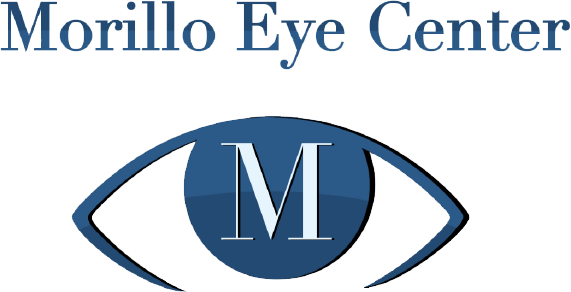Signs of Myopia in Children: How to Spot the Symptoms Early
Blog:Signs of Myopia in Children: How to Spot the Symptoms Early

Myopia, or nearsightedness, is a common vision condition that often begins in childhood. With myopia, distant objects appear blurry while close objects remain clear. Left unmanaged, myopia can progress, potentially leading to more severe vision issues later in life. At Morillo Eye Center, we believe that early detection and proper management are key to protecting your child’s vision.
What is Myopia?
Myopia occurs when the eye grows too long or the cornea becomes too curved, causing light to focus in front of the retina instead of directly on it. This misalignment results in blurry vision when looking at distant objects. Myopia often develops during school years when the eyes are growing rapidly, and genetics and environmental factors such as prolonged screen time or insufficient outdoor activities can contribute to its onset.
How to Spot the Symptoms of Myopia
As a parent, being aware of early warning signs can make all the difference. Here are common indicators of myopia in children:
Squinting: Your child may squint to see distant objects more clearly.
Difficulty Seeing the Board: Complaints about not being able to see the blackboard or whiteboard at school.
Sitting Close to Screens: Preferring to sit close to the TV or holding devices close to their face.
Frequent Eye Rubbing or Blinking: Signs of eye strain or discomfort.
Headaches: Persistent headaches, particularly after focusing on distant objects.
Avoiding Outdoor Activities: A preference for indoor activities, where close-up vision is sufficient.
How Myopia Impacts Vision and Daily Life
Myopia can significantly impact a child’s ability to learn and engage in activities. Blurred vision may lead to difficulties in the classroom, affecting academic performance. Children with untreated myopia might also struggle with sports or other extracurricular activities that require clear distance vision, potentially impacting their confidence and social development.
The Importance of Regular Eye Exams
Routine eye exams are crucial for detecting myopia early. We recommend comprehensive eye exams annually for children, even if they show no obvious symptoms. During an exam, our eye care professionals can evaluate your child’s vision, identify myopia or other potential issues, and discuss appropriate solutions to support their eye health.
Why Myopia Management Matters
Managing myopia isn’t just about providing glasses or contact lenses—it’s about slowing the progression of the condition to reduce the risk of serious eye problems, such as retinal detachment or glaucoma, later in life. Modern myopia management strategies include:
Orthokeratology (Ortho-K): Special overnight contact lenses that reshape the cornea.
Atropine Eye Drops: Medicated drops that can slow myopia progression.
Multifocal Contact Lenses: Designed to control myopia progression while improving vision.
Protect Your Child’s Vision with Morillo Eye Center
Your child’s vision plays a critical role in their learning, development, and overall quality of life. Recognizing the early signs of myopia and seeking timely professional care can make a significant difference in managing the condition effectively. We are committed to helping your child see their world clearly and confidently. With regular eye exams and personalized myopia management plans, you can safeguard their vision and support their future.
If your child showing signs of myopia, schedule an eye exam with Morillo Eye Center for personalized treatment options. Visit our office in Union City, New Jersey, or call (201) 867-0199 to schedule an appointment today.




